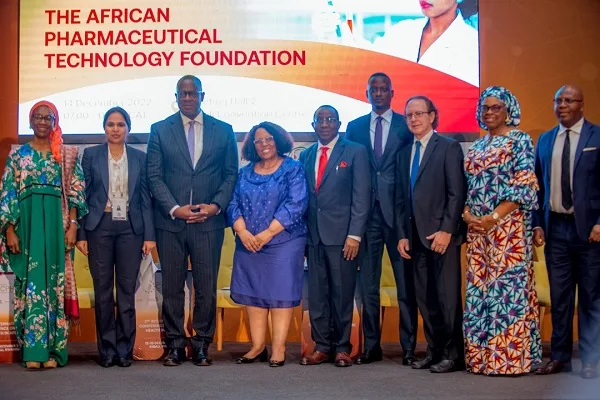AfDB Unveils Initiative for African Pharma
On 14 December 2022, the African Development Bank (AfDB) unveiled the setting up of the African Pharmaceutical Technology Foundation (#APTF) to promote local manufacturing of therapeutics and diagnostics in Africa. The end objective is to nurture and grow a comprehensive value chain around the pharmaceutical industry on African soil.
The AfDB made the announcement during a forum under the theme: “Technology Access for Pharmaceutical Manufacturing: The African Pharmaceutical Technology Foundation”, which took place on the sidelines of the 2nd International Conference on Public Health in Africa in Kigali, Rwanda.
“The COVID-19 pandemic has exposed the fragility of global health systems and the gaps in the production of critical drugs on the continent. The APTF is a ground-breaking institution that will significantly enhance Africa’s access to technologies that underpin the manufacturing of pharmaceutical products.”
AfDB VP Solomon Quaynor
During the forum, Professor Padmashree Gehl Sampath, Special Adviser on pharmaceuticals and health infrastructure to Dr Akinwumi Adesina, President of the #AfDB Group, stressed that the APTP aims to address the technology gaps to realize local manufacturing of drugs and vaccines. During his remarks, the representative from the World Health Organization (#WHO), Dr Precious Matsoso, highlighted that the APTF “would provide the much-needed support to address technology barriers for equitable access.”
The APTF will serve as a powerful and transparent intermediator which will broker and advance the interests of the African pharma industry on the global stage. The Foundation will facilitate access to advanced technologies and related manufacturing processes through IP licensing as well as other market and non-market based mechanisms.
The #COVID pandemic has put under the limelight the vaccine inequities and highlighted the need for mechanisms for timely transfers of technologies and distributed centers of manufacturing in the event the outbreak of a pandemic in order to quickly disseminate treatments where it is required. Despite the development of vaccines using novel technologies such as mRNA or Viral Vector, Africa experienced great difficulties gaining access and was low on the priority list to secure urgent supplies.
Currently, Africa imports more than 70% of its medicines at a cost of USD 14 billion annually. The initiative is extremely timely and could potentially turn out to be a game-changing plan which will contribute to saving lives in Africa while enhancing its capabilities.

